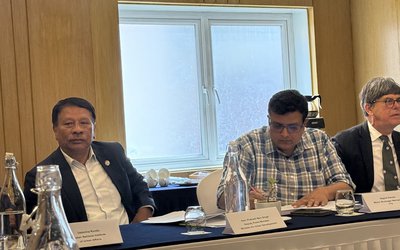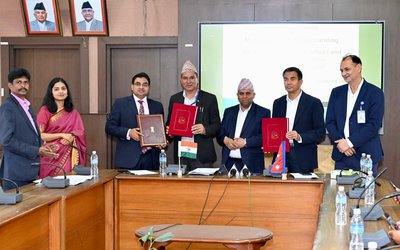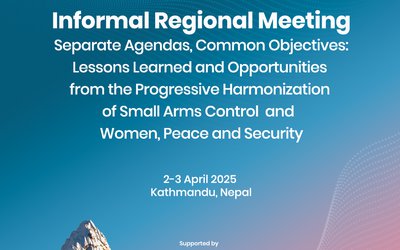
Care work is progressively defined as a social good, integral to societies and economies. It includes looking after children, elderly, those with physical and mental disabilities, those with illness, daily domestic work (cooking, cleaning, washing, fetching water etc.) and should encompass environmental work outside the household (including caring for animals, plants, and common spaces on which households depend).
However, the disproportionate responsibility of carework on women and girls has been seen to perpetuate gender and economic inequalities, undermining their overall wellbeing. Such heavy and unequal responsibilities limit women in all spheres of life.
Oxfam’s global reports highlight that, Women and girls undertake more than three-quarters of unpaid carework in the world and make up two-thirds of the paid care workforce.
They carry out 12.5 billion hours of unpaid carework every day. When valued at minimum wage this would represent a contribution to the global economy of at least $10.8 trillion a year, more than three times the size of the global tech industry.
Across the globe, 42 percent of women cannot get jobs because they are responsible for all the caregiving, compared to just six percent of men.
80 percent of the world’s 67 million domestic workers are women — 90 percent don’t have access to social security, and more than half have no limits on their weekly working hours.
According to ILO, women in Nepal are said to carry out 85 per cent of the daily unpaid care work, spending a total of 29 million hours a day (cumulatively) compared to 5 million hours spent by men . Just a look at collecting drinking water as an example, on average, women spend two thirds the time spent on unpaid care daily to collect water for the household. A recent international headline, ‘How fetching water is holding India’s women back’ , stated that women in India spend 150 million workdays every year fetching water. Globally, 1.8 billion people worldwide collect drinking water from sources that are not in premises, and in 7 out of 10 such households, women and girls are primarily responsible for water collection (WHO-UNICEF 2023).
Care work is crucial, but this disproportionate share is unfair and the radical undervaluing of carework by governments and businesses is a driver of inequality. Investments in carework are seen as costs rather than for economic growth and development.
I was in a discussion held by Ujyalo Foundation https://www.ujyalofoundation.org/ and Yubalaya https://www.ujyalofoundation.org/ and Yubalaya https://yuwalaya.org.np/ in Kathmandu recently where diverse participants shared views and experiences of carework emphasizing the need for transformative actions to dignify and value carework. Carework was perceived in a ‘full circle of life’ and panelists reflected on the intersectionality of gender, caste, ethnicity, economic status, disabilities as crucial to understanding carework. That ‘all of us have been/ will be receivers of care, and/or have been care givers’ at some point in our lives, is something we don’t reflect upon well enough.
Transformative changes are needed at all levels to, a. position care work in the larger economy and measure it’s contribution to GDP; b. invest in care sensitive public services and infrastructure such as health, education, piped water supply, transportation that are state-provisioned, affordable, accessible and of quality, along with social protection; and, c. invest in feminist leadership, to enable women, girls, those most vulnerable and their CSOs to influence and inform policy decisions on care economy.
With the climate crisis adding to women’s care responsibilities deepening the historical disparity, alongside exacerbating a plethora of development challenges, it is important to dial-up intersectoral work and investments for a gender-just care-economy.
Tripti Rai is the Country Director of Oxfam in Nepal















